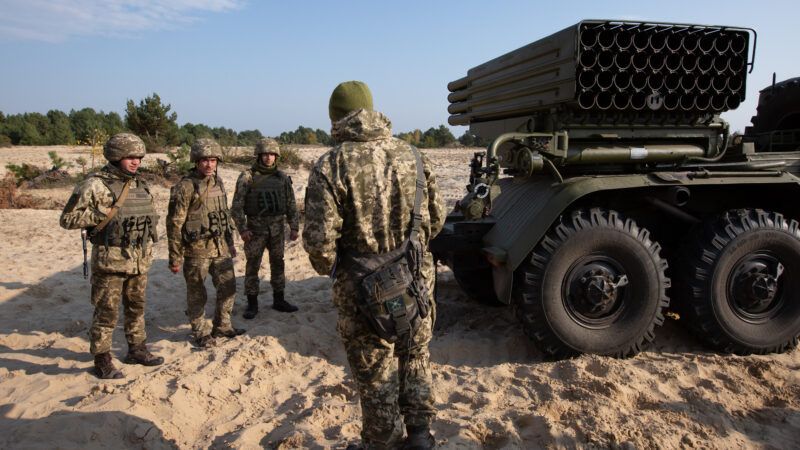When Our Weapons Go Missing
Washington is doing a poor job of monitoring whether the weapons it sends to Ukraine are ending up in the right hands.

Fears of loose weapons in Ukraine have become reality: Once American weapons arrive, Ukrainian criminals steal them. If U.S. arms transfer policies are not changed, Washington will inevitably accidentally arm groups that actively want to harm the United States.
In June, two separate Department of Defense inspector general reports revealed poor monitoring when U.S. weapons are transferred to Ukraine. Challenges in Ukraine's war zone have made it nearly impossible to track the weapons.
The first report found that the personnel responsible for ensuring accountability were given no "training or guidance." It concluded that the Pentagon does "not have accountability controls sufficient enough to provide reasonable assurance that its inventory of defense items transferred to [Ukraine] via the air hub in Jasionka was accurate or complete."
The second report discovered that the Office of Defense Cooperation–Kyiv was unable to monitor how American military equipment was put to use. Indeed, monitors could not "visit areas where equipment provided to Ukraine was being used or stored."
Such problems are not unique to Ukraine, but the Biden administration has been open to accepting the possibility of weapons dispersion when it comes to Ukraine's war. Yet discounting these perils comes with four long-term security risks.
First, larger weapons systems have a high value on the black arms market. In Afghanistan, for example, the Taliban has been able to continue funding itself through its already existing smuggling networks by selling U.S. weapons left behind in the withdrawal. These weapons are now used in attacks in Pakistan, Kashmir, and the Gaza Strip.
Even before the war, Ukraine had one of the largest illegally trafficked arms markets in Europe, according to the 2021 Global Organized Crime Index. This has only intensified since the Russian invasion. For example, in August 2022 a criminal organization in Ukraine stole and intended to sell 60 rifles and 1,000 rounds of ammunition.
Second, weapons can empower groups that intend to harm Americans. This has already happened in the Middle East, where Saudi Arabia and the United Arab Emirates lost and sold U.S. weapons to al-Qaeda–linked groups. CNN has reported that in Ukraine this year, Russia sent captured NATO weapons to Iran.
Furthermore, Washington has indiscriminately provided arms to groups fighting for Ukraine. Among the groups who have received U.S. weapons is the Azov Brigade—a militia with neo-Nazi roots that is currently fighting against Russia but has previously attacked civilians in Ukraine. The Brigade was identified as a human rights violator in the State Department's 2016 and 2017 Report on Human Rights Practices and serves as a key cog in the global far-right network.
Third, loose weapons create risks of hostile actors attaining confidential, high-value U.S. technology. In October 2022 the State Department created a plan to train Ukrainian soldiers in tracking highly portable, lethal, and advanced proprietary U.S. weapons. Nonetheless, as the plan notes, this training will take years before the plan has any substantial impact.
Fourth, weapons dispersion can escalate American entanglement in a war with another nuclear power. While loose weapons have not yet been used against Russia, Ukrainian military units have previously ignored U.S. suggestions to not attack the Nord Stream pipeline and used U.S. armored vehicles in attacks over the Russian border.
If U.S. weapons are used against Russian citizens inside Russia's borders, it all but guarantees escalation and increases the risk of a nuclear exchange. While the chances of the latter may be low, the Biden administration should be trying to eliminate the risk entirely.
The reality is that any time such a large number of weapons is transferred—especially to an active conflict zone—dispersion will occur. But the consequences of this dispersion are still up in the air. If the Biden administration is open to accepting these risks, Congress should speak up for Americans who aren't.


Show Comments (70)